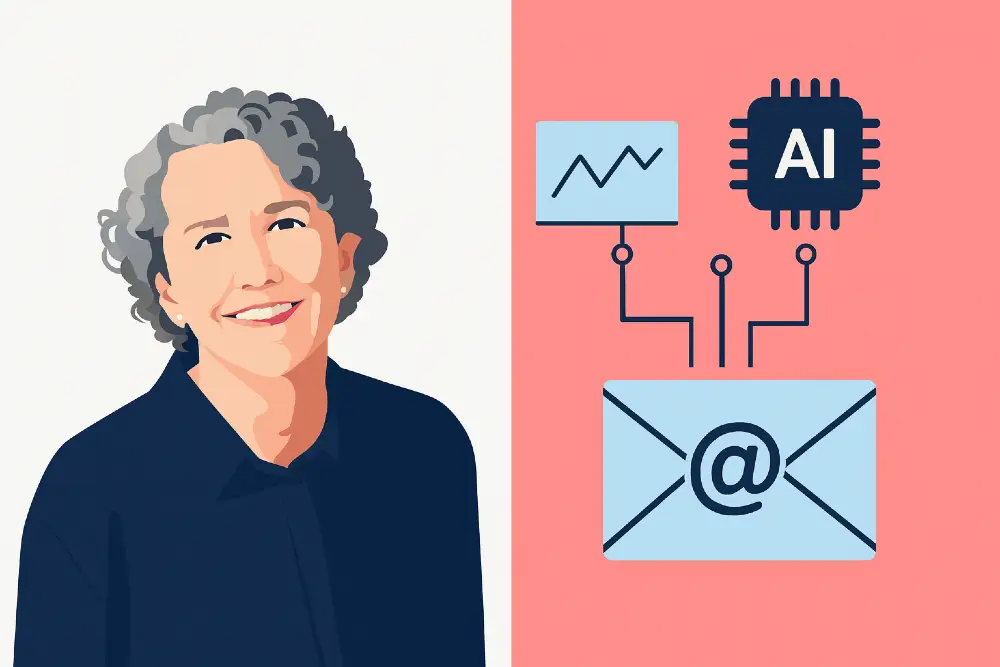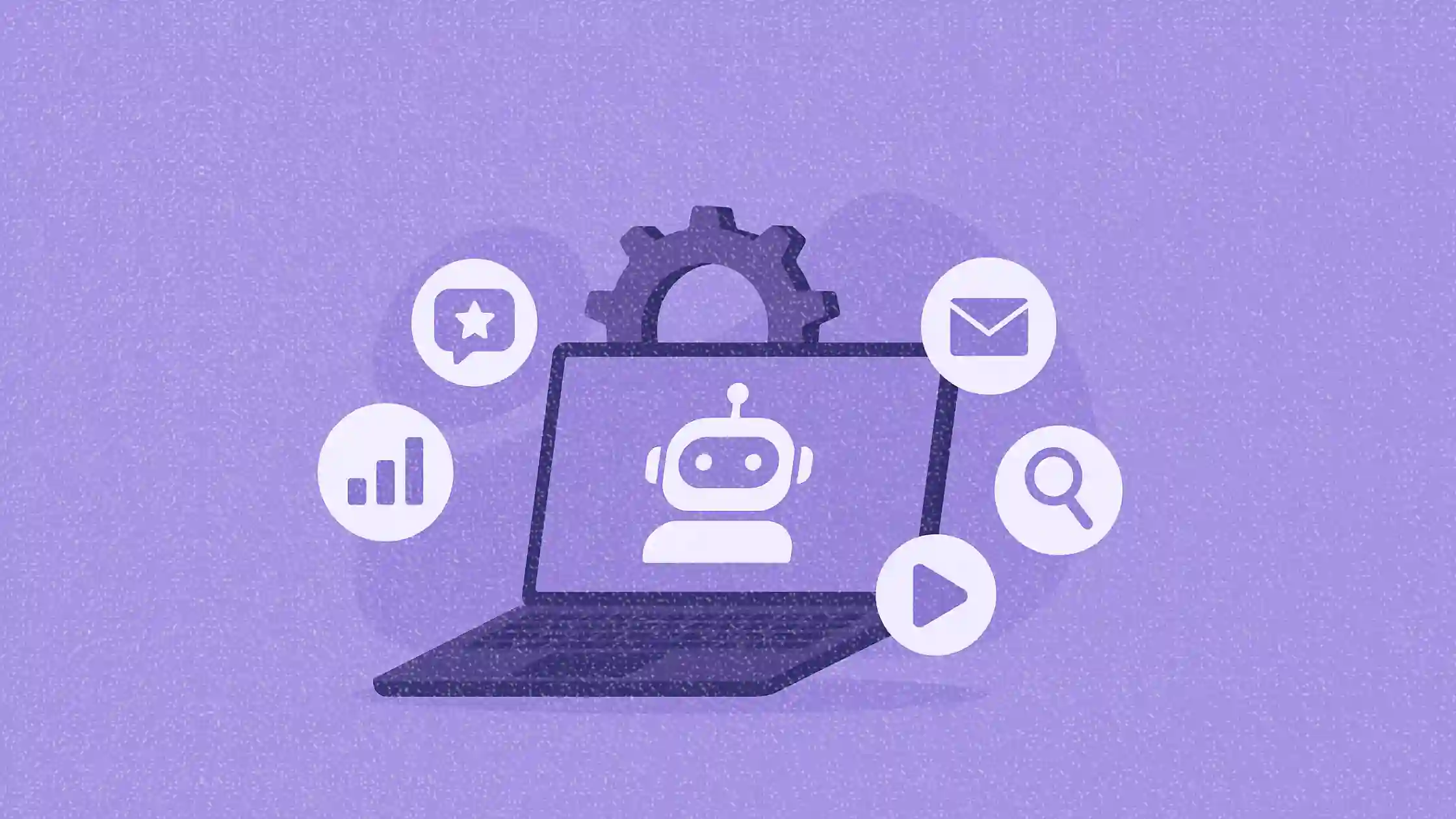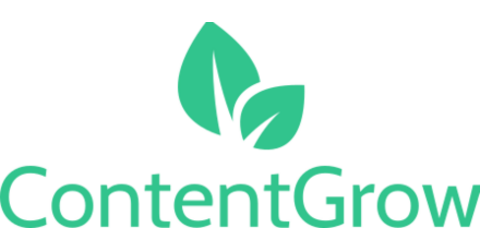Why B2B2C marketers can't just plug in AI email tools
Kathy McGovern from Access Development explains why B2B2C companies struggle with AI email tools—and how they can save time where it matters.

Kathy McGovern knows the frustration of being promised AI solutions that don't deliver. As Vice President of Product at Access Development, she oversees email marketing campaigns that reach millions of users monthly—but with a unique twist that most AI tools can't handle.
Access Development operates what the company describes as North America's largest private discount network, partnering with over one million merchants to provide employee perks, membership discounts, and loyalty programs for businesses, employers, and membership organizations. Founded in 1984 and based in Salt Lake City, the company sends client-branded emails to their constituents, requiring complex customization that standard email service providers struggle to accommodate.
In this interview, Kathy discusses why B2B2C marketers face unique AI implementation challenges, where artificial intelligence actually saves her team time, and how product marketers can strategically integrate AI without losing the human strategic thinking that drives results.
Short on time?
Here’s a table of contents for quick access:
- The B2B2C AI gap that no vendor talks about
- How B2B2C marketers win with AI
- The prompt specificity that separates good from garbage results
- Strategic focus over tactical automation
The B2B2C AI gap that no vendor talks about
While most email marketing platforms tout their AI capabilities, Kathy discovered a reality gap when trying to implement these tools for Access Development's unique business model.
"We are in a somewhat unique situation as we send emails on behalf of our clients to their constituents," she explains. "So, we need to deal with branding requirements, different link structures, blocking certain content based on client needs, and more. We were exploring some options with various email service providers that claimed that they had AI functionality, but none were able to handle our unique needs."
This challenge highlights a broader issue for B2B2C companies—those serving businesses who then serve their own customers. The complexity of managing multiple client brands, compliance requirements, and personalization at scale creates technical hurdles that many AI-powered platforms haven't solved.
"For right now, until the functionality catches up with our needs, we are unable to use AI in terms of the email send workflow from our email service provider," Kathy adds. The solution isn't to wait for perfect tools, but to find strategic workarounds that deliver immediate value.

How B2B2C marketers win with AI
Instead of forcing AI into areas where it doesn't fit, Kathy's team has identified specific workflow stages where artificial intelligence provides genuine efficiency gains.
The team starts with AI during campaign ideation for their recurring seasonal programs—Spring Break travel, Back to School, Holiday shopping, and Holiday travel campaigns. "We use AI to ideate on campaign themes," Kathy explains. "Once we have the campaign theme, we can leverage AI on coming up with individual email ideas that fit within that theme, from subject lines to the email copy."
Visual asset creation has become another major efficiency driver. Rather than having designers spend hours searching through stock photos, the team now uses AI imagery tools to generate exactly what they need. "Using AI for imagery has been a game changer for us," Kathy notes, citing examples like "Santa Claus surfing in the waves for a holiday campaign or a perfect snowy cabin in the woods to children shopping for back-to-school supplies."
The team also leverages AI for post-campaign data analysis, using it to identify patterns in subject line performance—whether emoji usage, personalization, or discount language drives better results. This eliminates the manual work of combing through campaign metrics, allowing their email marketing specialists to focus on strategic improvements rather than number-crunching.
The prompt specificity that separates good from garbage results

Kathy's team has learned that AI output quality directly correlates with input detail—a lesson many marketers discover through trial and error.
"I think the key is to ensure you are putting in specific prompts. Otherwise, garbage-in and garbage-out," she emphasizes. "For example, if we have a holiday travel marketing campaign idea, we try to input more details around the target market in terms of demographics, planned destinations we are highlighted, past campaigns we've used, campaign goals, tone guidelines, etc. By putting in more effort upfront you tend to get better results for your content or subject lines."
Her team has found value in using tools like ChatGPT's Write For Me feature, discovering that consistency with specific platforms helps the AI understand their business model and writing style over time. "As you use them more and more, it gets to know your company's business model, writing style, and it becomes more efficient in knowing what we are after," Kathy explains.
This approach differs from the common practice of testing multiple AI tools simultaneously. Kathy's strategy suggests that depth with fewer platforms may yield better results than breadth across many tools.

Strategic focus over tactical automation
The most significant impact of AI integration isn't in the tools themselves, but in how they reshape team priorities.
For Kathy's team, the primary benefit has been time savings that allow for more strategic thinking. By automating ideation, copywriting, and image creation, her marketing specialists can dedicate more energy to campaign strategy and optimization rather than manual execution.
This shift becomes particularly valuable for product marketers managing complex B2B2C customer journeys. Kathy sees AI's future potential in analyzing complete user paths—from initial prospect to loyal customer—to predict needs and craft messages with optimal timing and format. The technology could enable more sophisticated experimentation with messaging and imagery, while also extracting insights from diverse data sources including campaign results, customer reviews, chat transcripts, and social media interactions.
"Overall, AI will free up product marketers from manual execution and creation to enable them to focus on strategy," Kathy explains.
Rather than viewing AI as a replacement for human expertise, seasoned B2B2C marketers like Kathy are positioning it as a strategic enabler—handling routine tasks so teams can focus on the complex relationship management and strategic thinking that drives customer retention and business growth.




